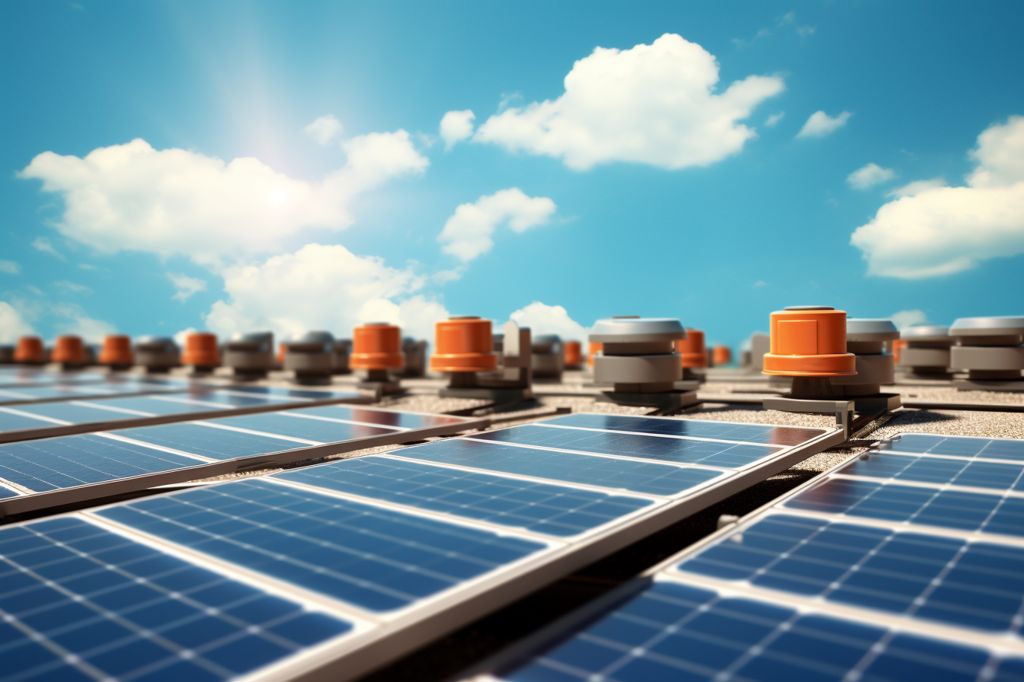In February 2023, the National Treasury launched the Energy Bounce Back Loan Guarantee Scheme (EBB) to support small and medium enterprises (SMEs) and households in investing in solar equipment. This initiative is in response to President Cyril Ramaphosa’s commitment to adjust the Bounce-Back Loan Scheme (BBS) for small businesses.
The Aim of the EBB
The EBB aims to generate an additional 1000MW in generation capacity and facilitate resilience to load shedding for micro and informal businesses. The scheme also includes power storage assets, such as batteries and inverters, to enhance resilience measures. Additionally, the EBB is a complementary intervention to the tax measures announced in the 2023 Budget Speech.
Loan Guarantee Mechanisms
The EBB will operate through three mechanisms to support businesses and households in investing in sustainable energy solutions:
- Loan guarantee for rooftop solar for SMEs and households’ investment
- Loan guarantee for rooftop solar for Energy Service Companies (ESCOs)
- Working capital loans for businesses in the rooftop solar supply chain
Furthermore, the Industrial Development Corporation (IDC) will facilitate new ESCO entrants and scale up existing ESCOs through a mezzanine finance instrument.
Participation and Eligibility
Participation in the EBB will be facilitated through commercial banks on an opt-in basis. Non-bank finance providers, including wholesale retailers offering credit products to SMEs for EBB eligible related loans, can access the scheme through participating commercial banks. Basic requirements like tax compliance and adherence to legal and regulatory requirements will apply.
Eligible businesses must have a maximum turnover of R300 million, and the maximum amount a business can borrow is R10 million. For resilience measures, businesses can borrow up to R30,000. For households, the maximum loan amount for purchasing rooftop solar is R300,000. Prospective customers will need to comply with the requirements set out by participating banks and the ESCO providing leasing services. Businesses in the rooftop solar supply chain can borrow up to R100 million for working capital, while installers can borrow a maximum of R100 million.
Loan Pricing and Availability
Pricing of loans will be capped at the repo rate at the commencement of the loan plus a maximum of 6%. The EBB will be available until August 30, 2024, offering SMEs, households, and businesses in the rooftop solar supply chain an opportunity to invest in sustainable and reliable energy solutions.
In his 2023 Budget Speech, Minister of Finance, Enoch Godongwana, announced that the government would guarantee solar-related loans for SMEs with a 20 percent first-loss basis. The government will assume the initial 20% losses through a government guarantee administered by the South African Reserve Bank, with finance providers taking on the risk for remaining losses for SMEs and households’ rooftop photovoltaic solar investments.
The Energy Bounce Back Loan Guarantee Scheme (EBB) aims to support small businesses and households in investing in sustainable energy solutions. The loan guarantee scheme operates through three mechanisms and is available through commercial banks and wholesale retailers offering credit products. Eligible businesses and households can borrow up to R10 million and R300,000, respectively, while businesses in the rooftop solar supply chain can borrow up to R100 million. The EBB will be available until August 30, 2024.








